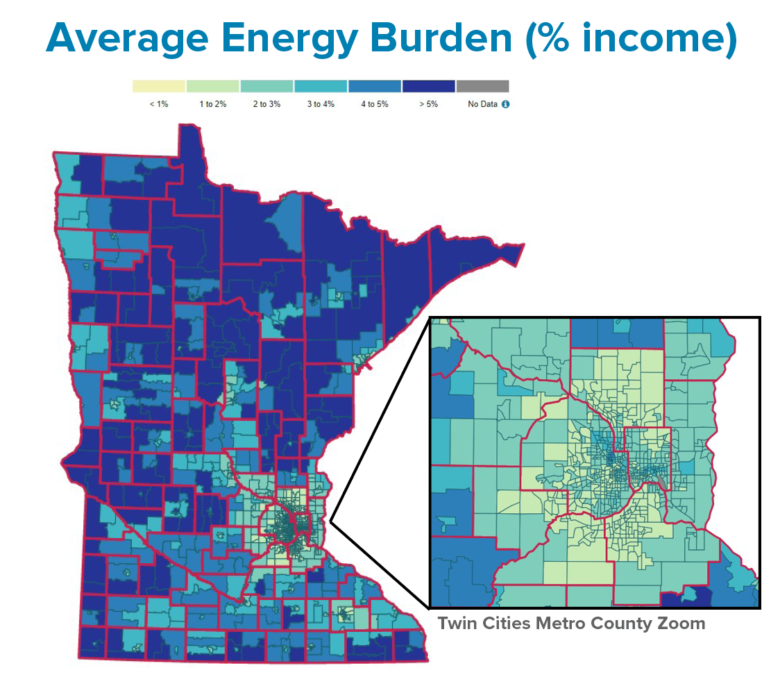
Fresh Energy has updated the Strategic Framework that guides the organization and based on careful analysis and input, we also refreshed the imperatives at the heart of our work. In this blog post, we elaborate on the imperative to “ensure an equitable and just energy transition.”
Too often throughout history, under-resourced communities and communities of color have been left behind in times of massive and transformational change. As the energy sector works to aggressively decarbonize and we seek to mitigate the impacts of climate change, we have not just an opportunity but an obligation to learn from past transitions, when certain policy choices have excluded marginalized communities at best, and actively harmed them at worst.

| Poverty Level | Home Energy Burden |
|---|---|
| Below 50% | 33% |
| 50-100% | 18% |
| 100-125% | 12% |
| 125-150% | 10% |
| 150-185% | 8% |
| 185-100% | 7% |
Fresh Energy is committed to centering equity and advancing a just transition as a key pillar of our work by:
- addressing the high energy burdens faced by under-resourced households and renters,
- ensuring that under-resourced communities and communities of color have access to affordable, reliable, clean transportation,
- prioritizing clean energy technologies in the communities that will be harmed first and worst from the impacts of climate change, and
- developing quality jobs and a diverse workforce in the energy sector, including for communities that have been economically dependent on fossil fuels.
Through all of this work, we will partner with and listen to our partners who are rooted in the community, including Black, Indigenous, and People of Color (BIPOC)-led organizations, sharing our power and privilege to elevate their voices in decision-making spaces.
“As an independent energy policy organization, Fresh Energy works in the public interest to advance clean energy in Minnesota and beyond. Fresh Energy’s new strategic framework emphasizes that an equitable transition and ambitious decarbonization go hand-in-hand. The framework meets a critical moment when historic disparities throughout society, including in parts of the energy system, require challenging.”
Professor Gabe Chan, PhD, Assistant Professor, University of Minnesota
We will center equity and justice as though the future of our planet depends on it.
Because it does.
